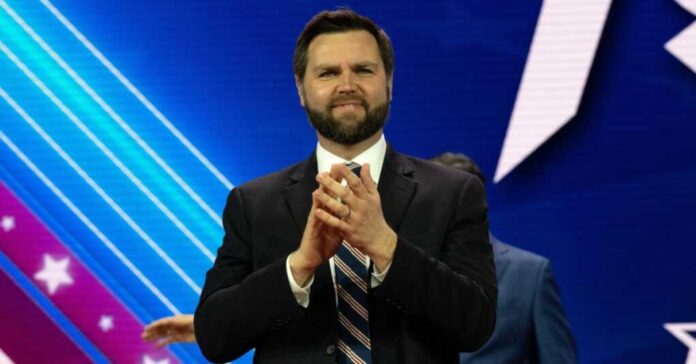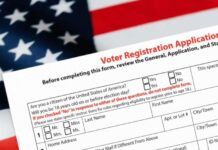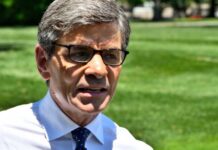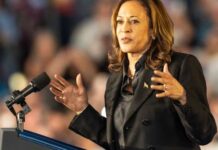
JD Vance (R-OH) has been chosen as former President Trump’s vice president. Critics note that his selection won’t do much to help Trump’s campaign, but historians note that one of Vance’s physical characteristics may still sway voters.
Vance has broken the “beard barrier.”
The “beard barrier” refers to the fact that it’s been rare for U.S. politicians to have full beards. Less than five percent of U.S. Congress members have beards or mustaches. Vance broke this barrier by becoming the first major party vice presidential candidate with a full beard since 1880.
Presidential historian Thomas Whalen thinks breaking the beard barrier may boost Vance’s popularity. He noted that traditionally, conservatives are clean-shaven. This makes Vance’s decision to wear facial hair significant, and Whalen says it will be “interesting” to see if he keeps it.
Former President Donald Trump, who usually doesn’t like facial hair, had no problem with Vance’s beard. He even compared him to a young Abraham Lincoln.
Voters often judge candidates based on appearance, with some physical traits subconsciously deemed more “leadership worthy” than others. Taller candidates appear more authoritative and capable, known as the “height bias.” Abraham Lincoln towered at 6’4″ compared to James Madison at just 5’4″.
A warm, genuine smile can make a candidate seem approachable and likable. Voters also find that being well-groomed and dressed professionally signals seriousness and readiness for the job. Senator John Fetterman (D-PA), often appearing in meetings in a hoodie and shorts, has been the subject of criticism for his refusal to “dress the part.”
Weight can be an issue; heavier candidates face stereotypes about their discipline and health. How a candidate speaks also matters, with voters favoring a confident, clear voice.
Allan Lichtman, a respected history professor at American University, noted that there’s no proof that vice presidential picks have changed election results recently. Lichtman believes Vance won’t make Trump more likely to win, just as past unpopular choices like Dan Quayle for George H.W. Bush and Al Gore for Bill Clinton didn’t harm their chances. Despite early VP doubts, Bush and Clinton both went on to win their elections convincingly.
Still, Lichtman thinks Vance’s beard may boost his popularity with voters.
Historian Larry Cook agrees, noting that beards are “in” again. He believes it will give voters a new talking point outside of tired and uninspired political rhetoric. “I think it can only help him if people are talking about it one way or another,” Cook notes.
In the 2016 presidential election, Vance openly criticized Trump, sending a text message claiming that the former president might be “America’s Hitler.” Since then, Vance has repaired his relationship with Trump and become a strong supporter.
When news emerged in 2022 about his Hitler comment, a spokesperson acknowledged it but stated it no longer represented Vance’s current views.
Georgia State Senator Josh McLaurin recently posted on X that he received Vance’s “America’s Hitler” text in 2016. McLaurin criticized Vance, calling him a “sellout” and describing him as angry and seeking revenge. “JD’s rise is a triumph for angry jerks everywhere,” he posted on X.
Vance’s mentor, Republican Senator John Barrasso from Wyoming, said Vance changed his opinion about Trump after seeing what Trump achieved as president. In interviews, Vance explained that his view on Trump didn’t suddenly change in a single “ah ha” moment. Instead, he gradually realized that his earlier concerns about Trump were more about Trump’s way of doing things than the actual results.
In his acceptance speech at the Republican National Convention, Vance focused on his life story, his family’s history in Midwest manufacturing, and his desire to help “regular people” with economic issues. He portrayed Trump as the last chance to bring back lost opportunities. He also took a moment to highlight his own background as a working-class person and the possibility of being the first “millennial” vice president.
While a debate between Vance and Vice President Kamala Harris hasn’t been set yet, it’s widely expected that he will easily defeat her on stage. In the epic showdown between giggles and beards, Harris won’t stand a chance.










